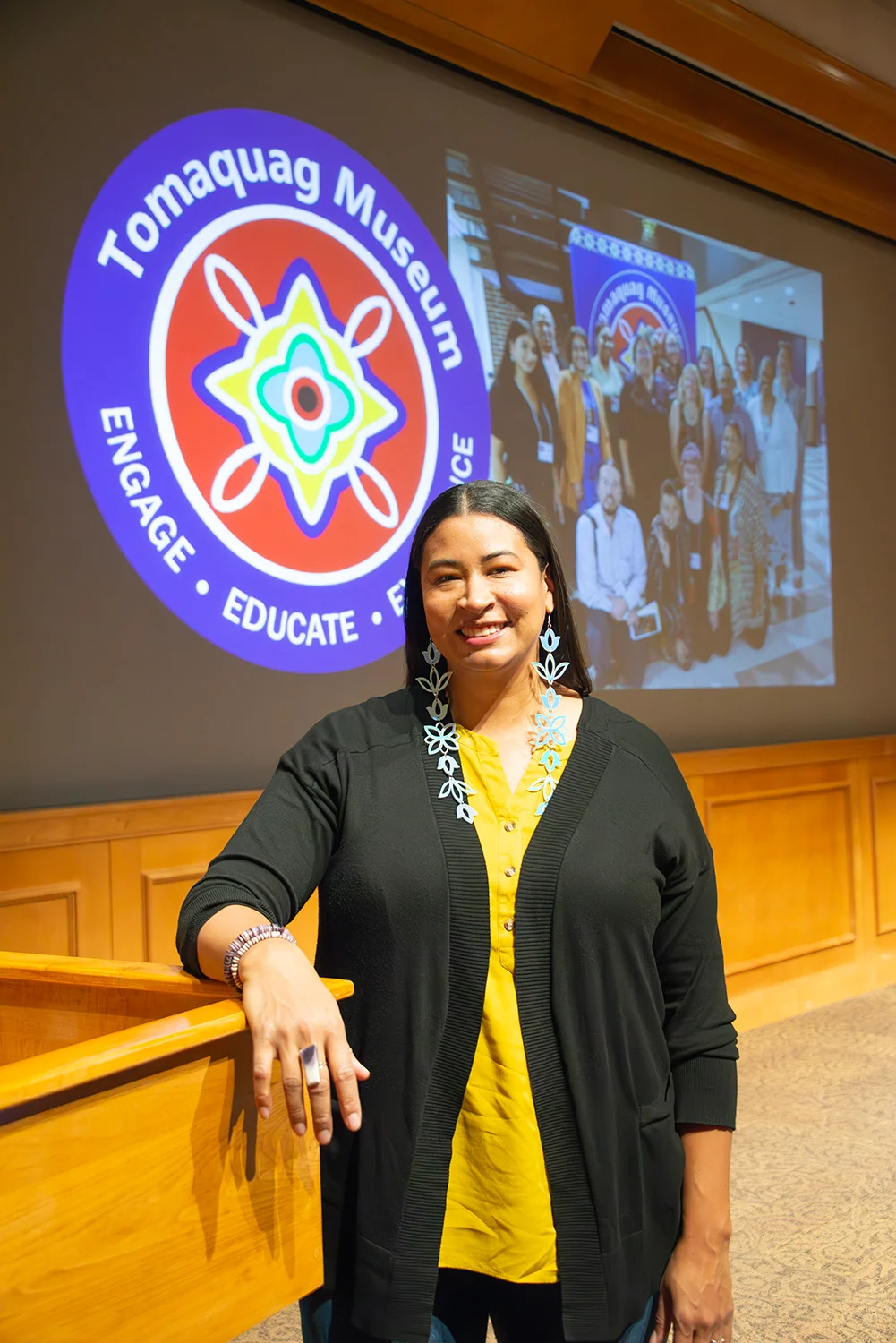Indigenous tribe members spoke about increasing awareness for Indigenous people in a panel discussion hosted by the University of Rhode Island’s Multicultural Student Services Center on Nov. 6.
The forum included speakers from the Narragansett and Wampanoag tribes, including Bella Noka, member and tribal elder of the Narragansett, and Mack Scott, director of undergraduate studies and the Native American and Indigenous studies initiative at Brown University.
This was the fourth year of panel discussions for Native American Heritage month, and this year’s topic was geared toward activism for Indigenous people and causes.
“Your commitment to changing and bettering your community shouldn’t start and end with an election,” Raymond “Two Hawks” Watson ’05, the moderator for the panel said. “That should be a part of the process but it should be an ongoing thing we are all involved in.”
Each panelist shared their thoughts about activism itself and what needs to be done to uplift the Indigenous communities, particularly the Narragansett tribe.
“Nothing that has been won has been won forever,” Silvermoon Larose, panelist and assistant director of the Tomaquag Museum, said. “We have to constantly strive to keep that progress.”
The panelists emphasized the importance of education on Indigenous history and current issues. Scott talked about how in 2020, Rhode Island mandated that Black history be taught in public education, followed by Pacific Islander history in 2022. However there is no mandate to teach Indigenous history in Rhode Island schools.
“More people know about Narragansett beer in the state than they do the people,” Scott said. “If that’s your knowledge base then obviously you’re not gonna stand when it comes time to rethink and understand how inequities are corrected.”
Scott also spoke of the stolen sovereignty of the Narragansett people. In 1880, Rhode Island illegally detribalized the Narragansett people, stripping them of their sovereignty and rights, according to Scott.
“On a state level I think we need to recognize the wrong that was done to the sovereignty of Narragansett as a nation and a second-class citizenship devised for us,” Larose said.
Indigenous Peoples’ Day is now celebrated in Rhode Island in conjunction with Columbus Day. The panelists were asked about the addition of Indigenous Peoples’ Day and what it meant to them.
“Every day is my day, every day is my peoples’ day,” Noka said. “I celebrate them when I wake up. I celebrate my people because we have been oppressed for so long, through genocide and ethnic cleansing.”
Noka criticized the performative allyship many non-indigenous people participate in, and called for more than just one day of celebration.
“What [Indigenous Peoples’ Day] seems to me is ‘let’s go to a potluck, let’s watch them dance, let’s eat their food’ and I’m past that,” Noka said. “I want repatriation of our lands and for you to stop digging up our ancient ones, respectfully.”
This event was the day after the 2024 presidential election, and voter turnout for Indigenous Americans was a hot topic brought up in the discussion. Larose talked about her experiences in voter outreach initiatives that were aimed at Indigenous people. Many native people told her they did not vote because they felt their voices did not matter.
“I can understand as a people who have been disenfranchised by this government that has had their sovereignty eroded, that constantly see systems set up to work against them,” Larose said.
“But unless we are actively involved in changing the systems, we continue to just accept what’s thrown at us.”
University President Marc Parlange attended the event and addressed the attendees, thanking the Native Student Organization who helped plan this event and many others. He also talked about the Narragansett Scholarship, which provides full in-state tuition and fees for students of Narragansett ancestry who are accepted into the university, according to the URI website .




